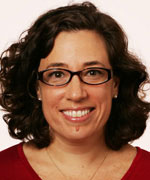Public Interest News Bulletin – October 29, 2010 – Halloween Edition
Boo!!!, people. Boo! because it’s Halloween and boo! because the Phillies got knocked out of the playoffs. This week’s News Bulletin is bursting at the seams because we took a break last Friday. This happened because we are lazy we were hosting and/or attending NALP’s Public Service Mini-Conference and the Equal Justice Works Conference and Career Fair.
We’ll put up a debriefing post about those events later, but without further ado here’s two weeks of public interest news, including: A Colorado district attorney isn’t high on public defenders; there’s nothing corny about access to justice in Iowa; a public law school’s clinic program subject to NJ open records laws; grayhairs…er…senior attorneys…volunteering on the access to justice front; federal hiring reform is happening about as quickly as most federal things happen; some domestic abuse prevention funding in Southeast PA; a foreclosure clinic at Albany Law; Canada’s feeling the legal services funding pain, too; misguided pro bono efforts in San Fran?; public defender and prosecutor almost come to blows?; speaking of, let’s return to prosecutors and defenders in Colorado; you’re welcome, Alaska Legal Services Corporation, for your organization’s new motto; LSC’s inspector general scrutinizing a Louisiana grantee program; law students fighting foreclosures in Beantown; a goofy and fortunate financial boost for a Chicago public interest organization; Microsoft forks over big donation bucks to Kids in Need of Defense (KIND); Kentucky hops on the AtJ commission bandwagon; New York State Bar’s president wants more government funding for legal services; so does the New York Times’ editorial board.
- 10.28.10 – Kerfuffle alert! On 10/22, the Aspen Daily News in Colorado ran a story about the funding differences between the local public defender’s and prosecutor’s office. We summarized that story in Item 11 below, and we indicated that the story closed with comments from District Attorney Martin Beeson that were sharply critical of the role of public defenders in the criminal justice system. Well, those comments – “Public defenders are not defenders of the public. They are not serving the public good. They are taxpayer-funded attorneys for criminals.” – have caused a stir in the Colorado legal community. In a more recent Aspen Daily News piece, critics characterized Beeson’s comments as “scary,” “spectacularly ignorant,” and showing a “shocking disregard” for constitutional principles. Beeson is not backing down: ““I stand by my statement. The so-called public defenders do not defend the public. The law enforcement defends the public. The prosecutors defend the public.”
- 10.26.10 – In a letter to the editor published in the Des Moines Register, two legal services advocates highlight the importance – and the recent successes – of the Iowa Supreme Court in expanding access to justice for low-income Iowans. The court’s justices have “encouraged Iowa lawyers to provide services to low-income Iowans. Last year alone, more than $2 million in donated legal services were provided. The Iowa Supreme Court has also fostered the development of self-help court forms that allow unrepresented Iowans the tools needed to seek judicial remedies when they can’t afford to hire a lawyer.”
- 10.26.10 – the Chronicle of Higher Education reports that Rutgers law school clinics must prepare for the sunshine: “Defying the wishes of several national associations dealing with legal education, an appeals court in New Jersey has denied the legal clinics of that state’s public law schools immunity from its open-records law, exposing them to new document requests that could greatly complicate their work.” A Rutgers environmental law clinic is at the center of this decision. After it represented a citizens’ group in opposing a real estate development plan, the developer tried to subject the clinic to disclosure provisions under the state’s Open Public Records Act. On the trial court level, the clinic was successful in opposing the disclosure demands; the court found that the clinic’s unique status, not just as a publicly funded institution but as a law office with needs for preserving confidentiality, exempted it from the OPRA. But the appellate court disagreed. The clinic’s position was backed by the American Association of University Professors, the Clinical Legal Education Association, and the Society of American Law Teachers. The Rutgers case and some others around the country involving challenges to law school clinics’ autonomy made waves earlier this year, as we noted in the final item of our 4/16/10 Public Interest News Bulletin.
- 10.26.10 – New York Chief Judge Jonathan Lippman, the state’s top jurist, is making good use of attorneys who are long in the tooth and not short on altruism. A while back we covered Chief Judge Lippman’s launching of an “attorney emeritus” program that allowed retired attorneys to remain active and provide pro bono services to low-income clients in a variety of civil matters. This represents one step Lippman has taken in an impressive personal crusade to narrow the justice gap. (For more see Item 1 and accompanying links). More recently, according to the New York Law Journal, the emeritus program is expanding to accept more volunteers. “Last month, the initiative was one of 10 programs in the state to be recognized by Harvard Kennedy School’s ‘Bright Ideas’ program, which was created to share ‘creative government initiatives’ around the country with public sector, nonprofit and academic communities. Now, eligibility has been expanded to include non-retired lawyers who otherwise meet the program’s age and experience requirements.”
Permalink Comments off



















